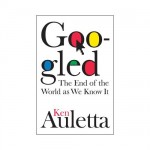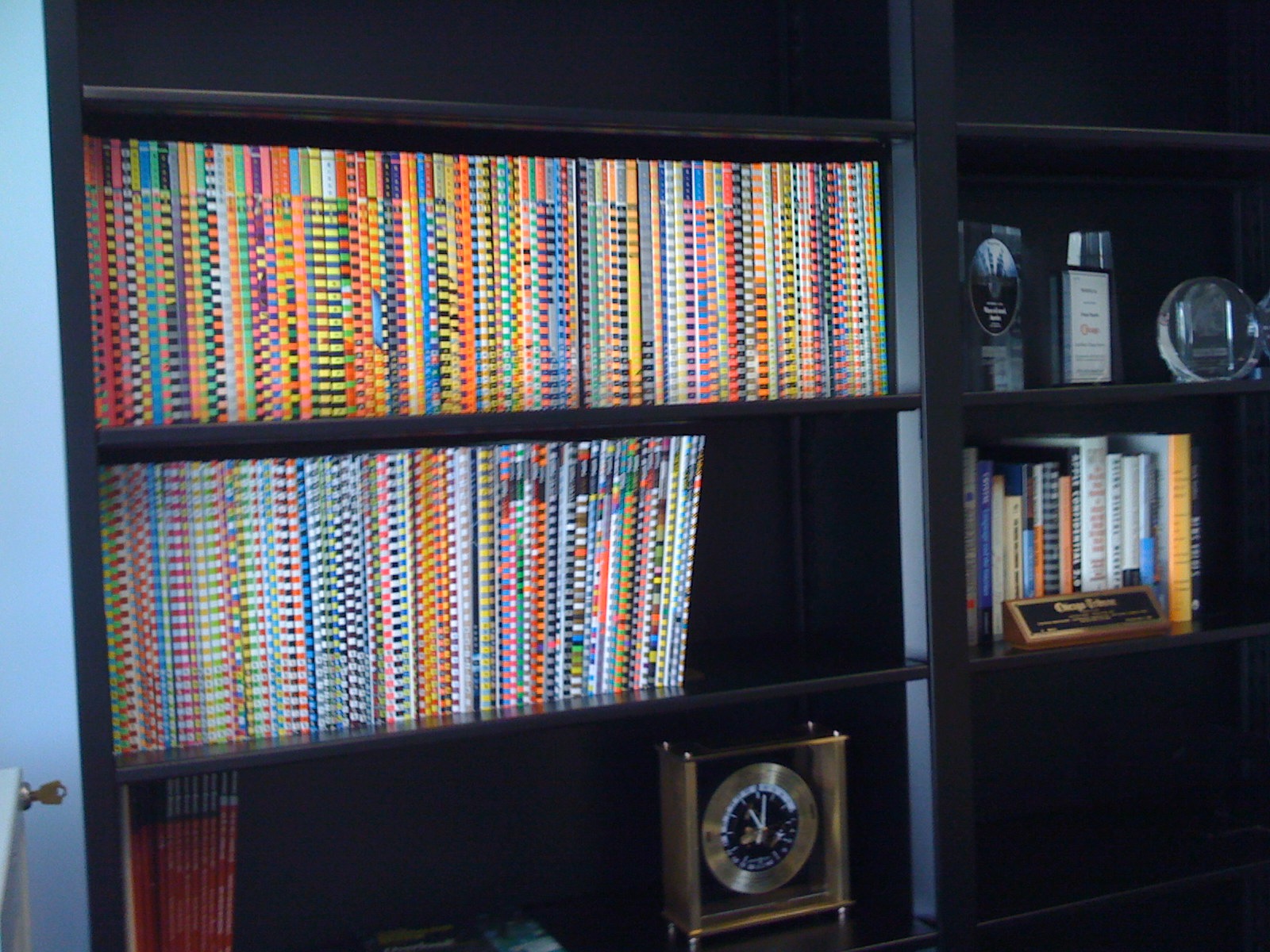Well, it was pretty exciting in Deerfield tonight, what with a Great Horned Owl calling from two blocks down the street at 8:45. Of course, the only reason I was outside to hear him was that I was straggling home from Northwestern at that hour, extracting my daily quota of catalogs from the mailbox.
And the reason I was straggling home was that I stayed in Evanston until I had more or less finalized a reading list for my winter class for graduate students. The winter term is almost as close as actual winter: It starts Jan. 4 at 9 a.m.
It’s the reading list work that has kept me away from blogging the last couple weeks:
- The good news for me is that I worked my way through thousands of pages chock full of good ideas and trenchant observations, many of them published over just the past few weeks and months.
- The good news for my students is that part of the exercise was identifying the absolutely most pertinent few pages in each of these books to assign to them.
- And the even better news for me, my students, and the copyright holders is that my colleague Dr. Rachel Davis Mersey pointed me to a company, University Readers, that handles copyright clearances for book excerpts and then assembles them into a “course pack” that students can buy for a tiny fraction of the cost of that stack o’ books.
My nearly final draft of the syllabus begins this way:
The objectives of this course are
- first, to reset the starting point from which students view both the craft and the business of journalism;
- second, to familiarize students with the media industry and its rapidly changing practices in areas including business, operations, technology and content; and
- third, to position students to capitalize on changes they encounter during their careers.
So, in order to accomplish that, what have I been reading? After the jump, you will find a partial bibliography of my reading list.
 Of course, some books are too interesting or important or trenchant or closely argued to be excerpted. Such a book is the new Ken Auletta, Googled: The End of the World As We Know It. So alone among my recent readings, that’ll be one we peruse from beginning to end.
Of course, some books are too interesting or important or trenchant or closely argued to be excerpted. Such a book is the new Ken Auletta, Googled: The End of the World As We Know It. So alone among my recent readings, that’ll be one we peruse from beginning to end.
 One more observation: Wired magazine remains tremendous. Several recent pieces also made the cut, making me glad that I not only have maintained my subscription, but that I keep them handy on my office shelves.
One more observation: Wired magazine remains tremendous. Several recent pieces also made the cut, making me glad that I not only have maintained my subscription, but that I keep them handy on my office shelves.
At any rate, now it’s time to move on to the lectures and presentations. But I sure have a lot of ideas in my head to play with. Oh, and if you take the trouble to go to the jump and look at my recent reading, do me a favor: If you see some recent book that I should be diving into, by all means let me know.
Selected bibliography, “How 21st Century Media Works”
- Chris Anderson, The (Longer) Long Tail (Revised and Updated): Why the Future of Business is Selling Less of More, Hyperion, 2008.
- Chris Anderson, Free: The Future of a Radical Price, Hyperion, 2009. Pages 135-161. ISBN 978-1-4013-2290-8.
- John Battelle, The Search: How Google and Its Rivals Rewrote the Rules of Business and Transformed Our Culture, Penguin/Portfolio, 2006.
- Clayton M. Christensen and Michael E. Raynor, The Innovator’s Solution: Creating and Sustaining Successful Growth, Portfolio, 2005.
- Rita Clifton (editor), Brands and Branding (Second Edition), Bloomberg Press, 2009.
- James T. Hamilton, All the News That’s Fit to Sell, Princeton University Press, 2003.
- Jack Fuller, What’s Been Happening to the News, University of Chicago Press, 2010.
- Jeff Jarvis, What Would Google Do?, Collins Business, 2009.
- Mitch Joel, Six Pixels of Separation, Business Plus, 2009.
- Alex S. Jones, Losing the News: The Future of the News That Feeds Democracy,Oxford University Press, 2009.
- Jonathan A. Knee, Bruce C. Greenwald, and Ava Seave, The Curse of the Mogul: What’s Wrong with the World’s Leading Media Companies, Portfolio, 2009.
- Philip M. Napoli, Audience Economics: Media Institutions and the Audience Marketplace, Columbia University Press, 2003.
- Clay Shirky, Here Comes Everybody: The Power of Organizing Without Organization, Penguin Books paperback, 2009.
- David Weinberger, Everything is Miscellaneous: The Power of the New Digital Disorder, Henry Holt, 2007. Pages 199-230. ISBN 978-0-8050-8811-3.
- The Big Thaw: Charting a New Future for Journalism, a white paper by The Media Consortium, July/September 2009.

